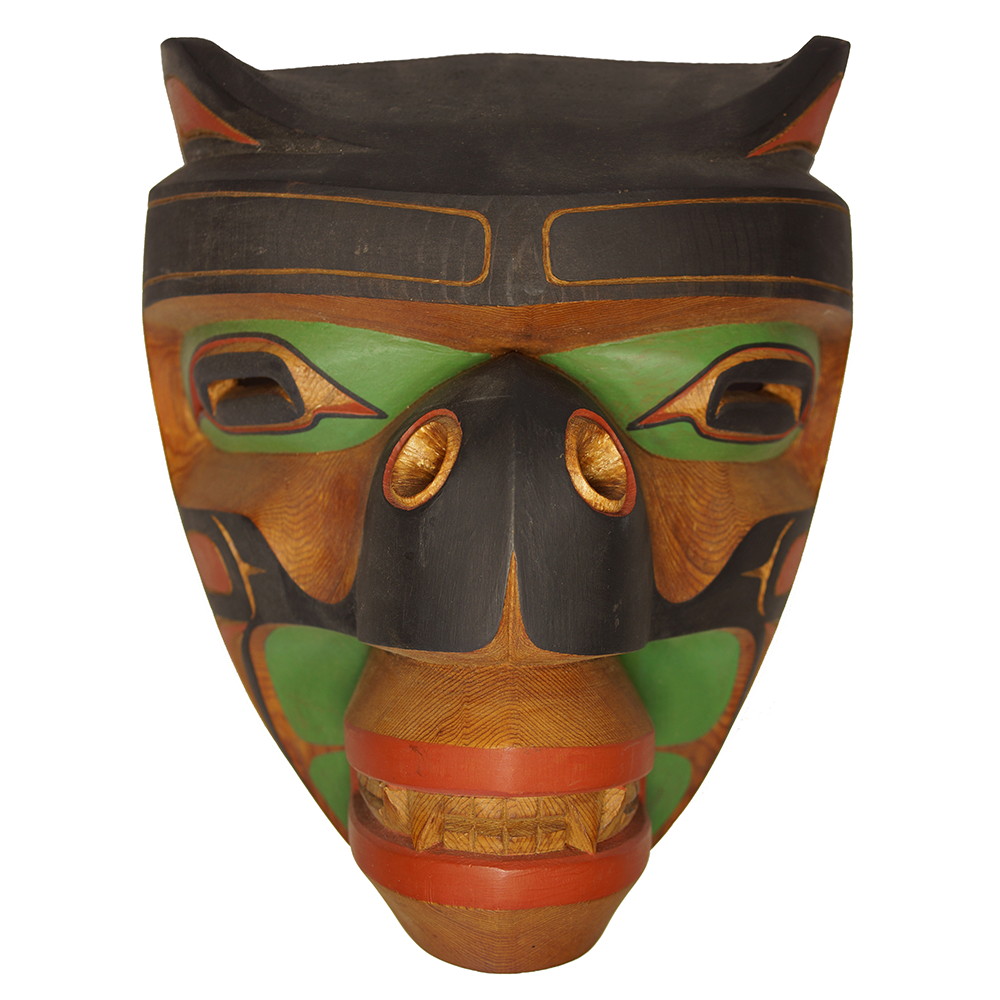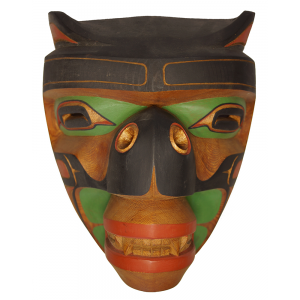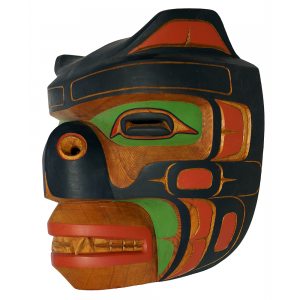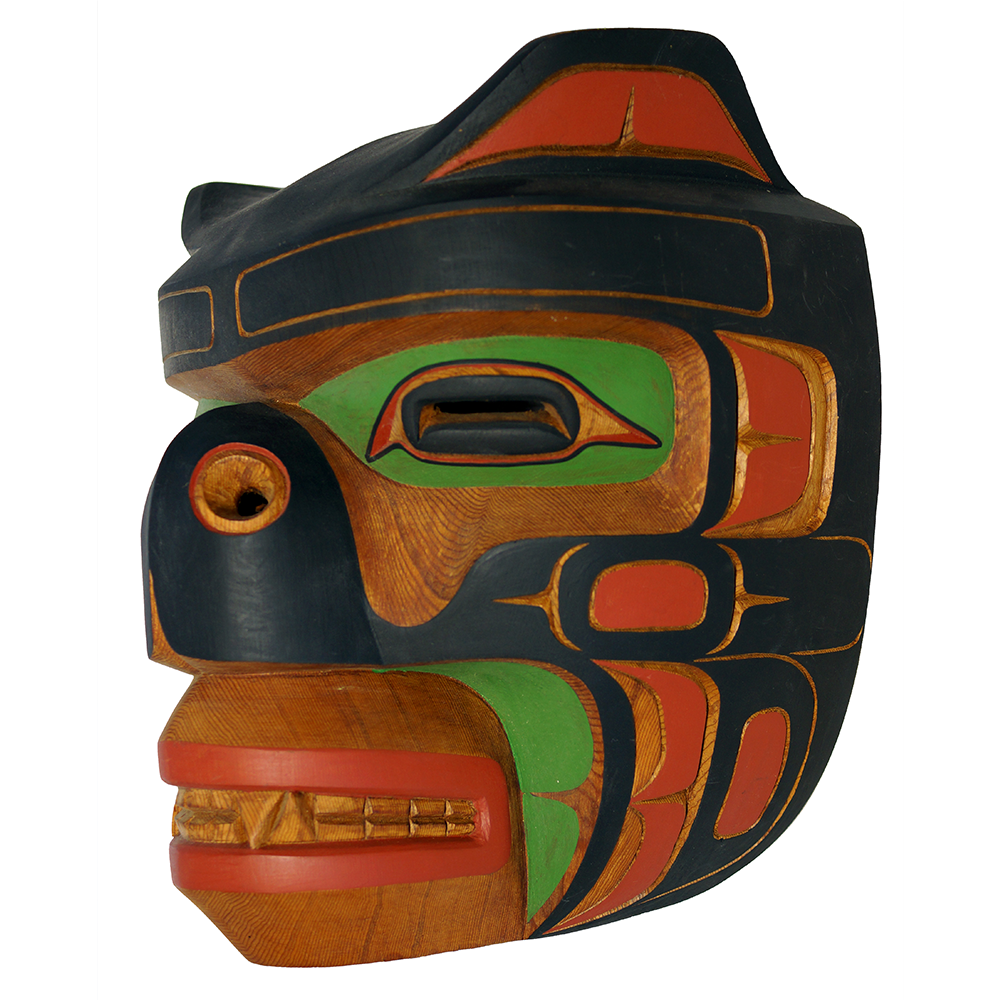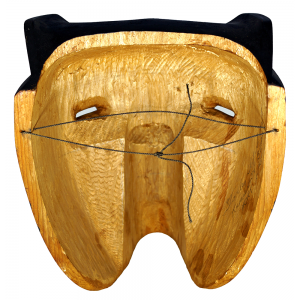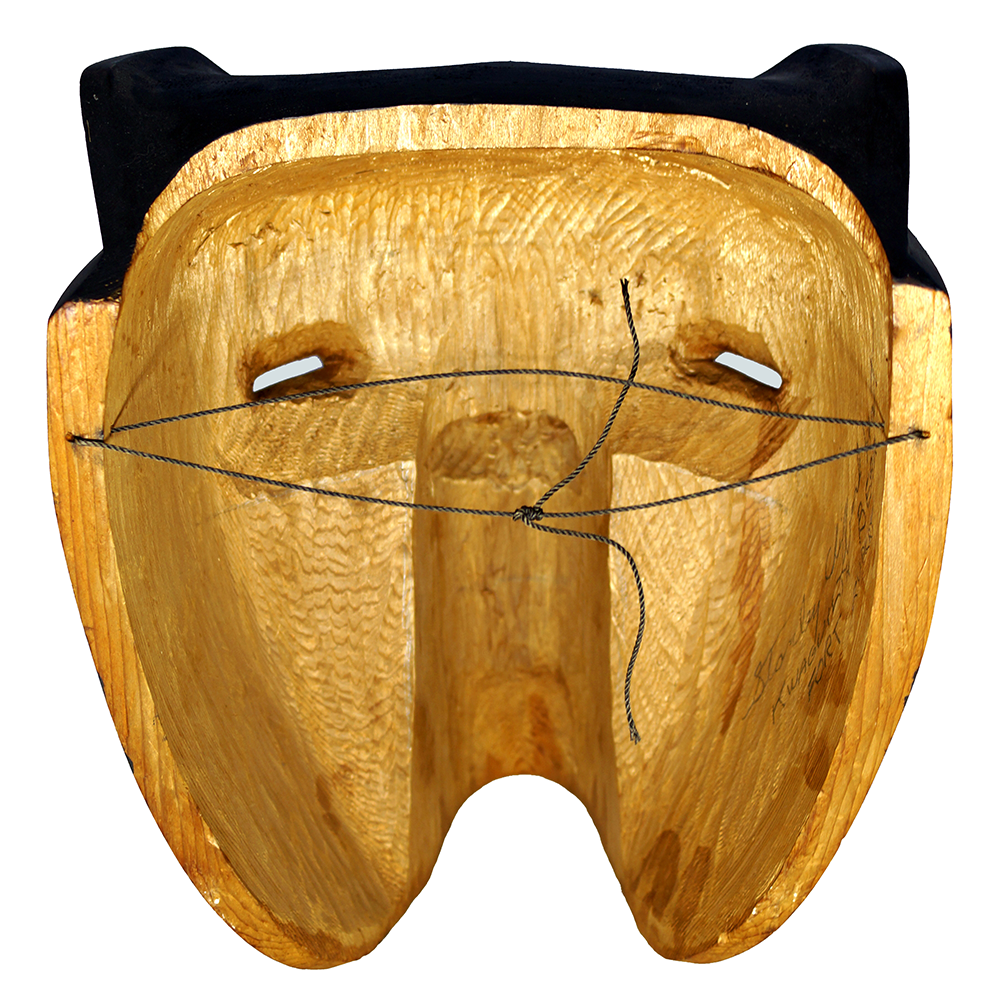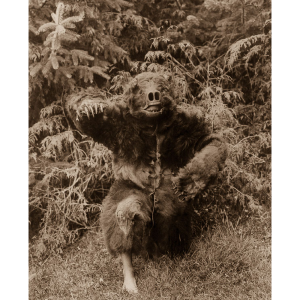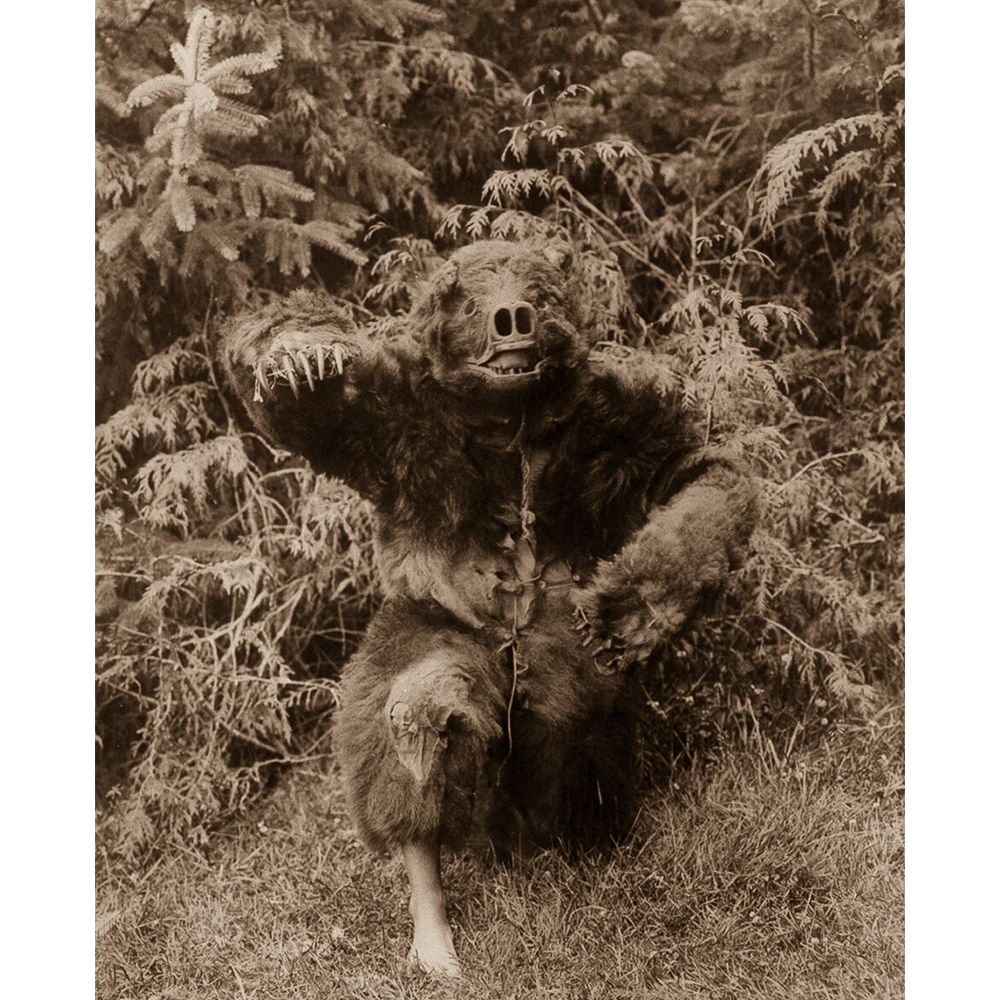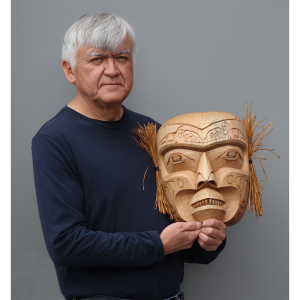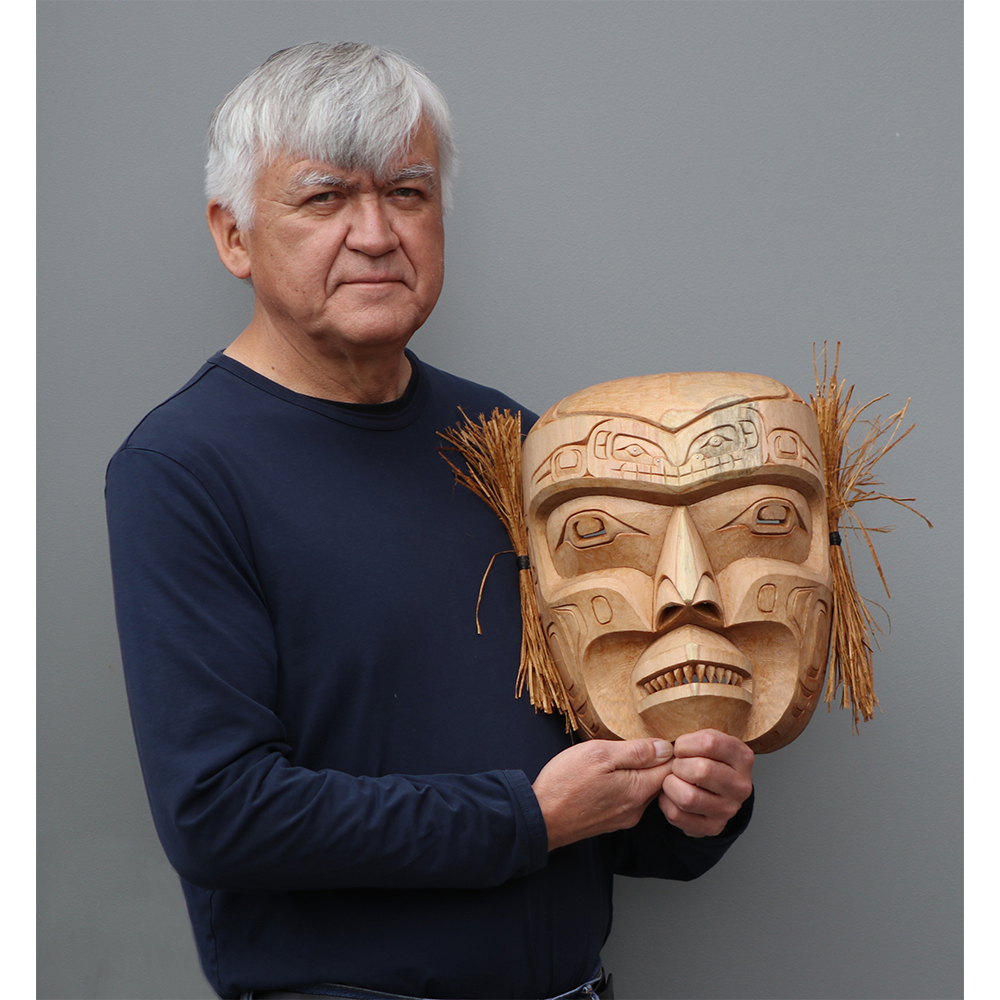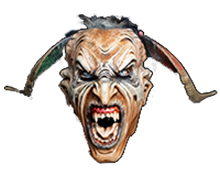TITLE: Kwakwaka’wakw Bear Mask
TYPE: face mask
GENERAL REGION: North America
COUNTRY: Canada
SUBREGION: British Columbia
ETHNICITY: Kwakwaka’wakw
DESCRIPTION: Na̱n (Bear) Mask
CATALOG ID: NACA002
MAKER: Stanley Clifford Hunt (Fort Rupert, Victoria, 1954- )
CEREMONY: Potlatch
AGE: 1970s
MAIN MATERIAL: red cedar wood
OTHER MATERIALS: paint
A potlatch is a culturally important ceremony among the coastal indigenous Americans of British Columbia, held on many different occasions. It could be held to celebrate a family member’s change in social status, such as a marriage, birth, death, or initiation into adulthood. It could also be held to restore a person’s prestige after a loss in dignity, such as falling out of a canoe or making a hunting error. The ceremony could last for one day or as long as three weeks, depending on the occasion and the wealth of the giver.
A potlatch typically included three important components: a feast, entertainment, and gift giving to the guests. The entertainment consisted of singing and masked dancing. The more lavish the gifts, feast, and entertainment, the greater the prestige gained by the giver. Because masks and costumes were expensive and time-consuming to make, larger and more elaborate masks raised the prestige of the potlatch giver. The masks themselves represented totemic animals such as the killer whale, raven, beaver, or shark, or else mythical figures and beasts, such as the Komokwa, Dzunukwa or Bukwus. This mask represents the na̱n (bear), a spiritually powerful totemic animal that is considered an ancestor of the Kwakwaka’wakw people.
For more on masks of the coastal peoples of western Canada, see Peter MacNair, Robert Joseph & Bruce Grenville, Down from the Shimmering Sky: Masks of the Northwest Coast (Vancouver: Douglas & McIntyre Ltd., 1998) and Edward Malin, A World of Faces: Masks of the Northwest Coast Indians (Portland: Timber Press, 1978).
